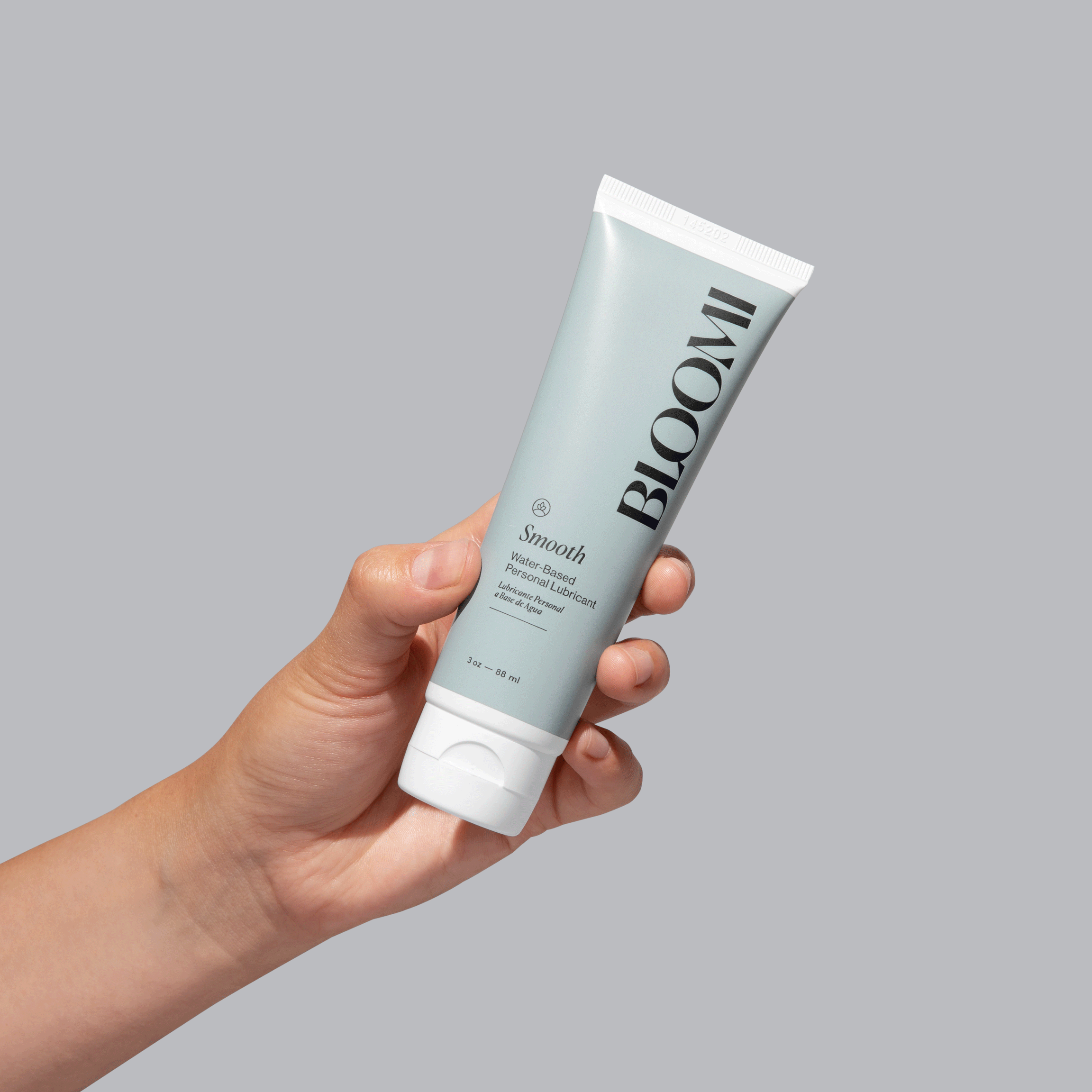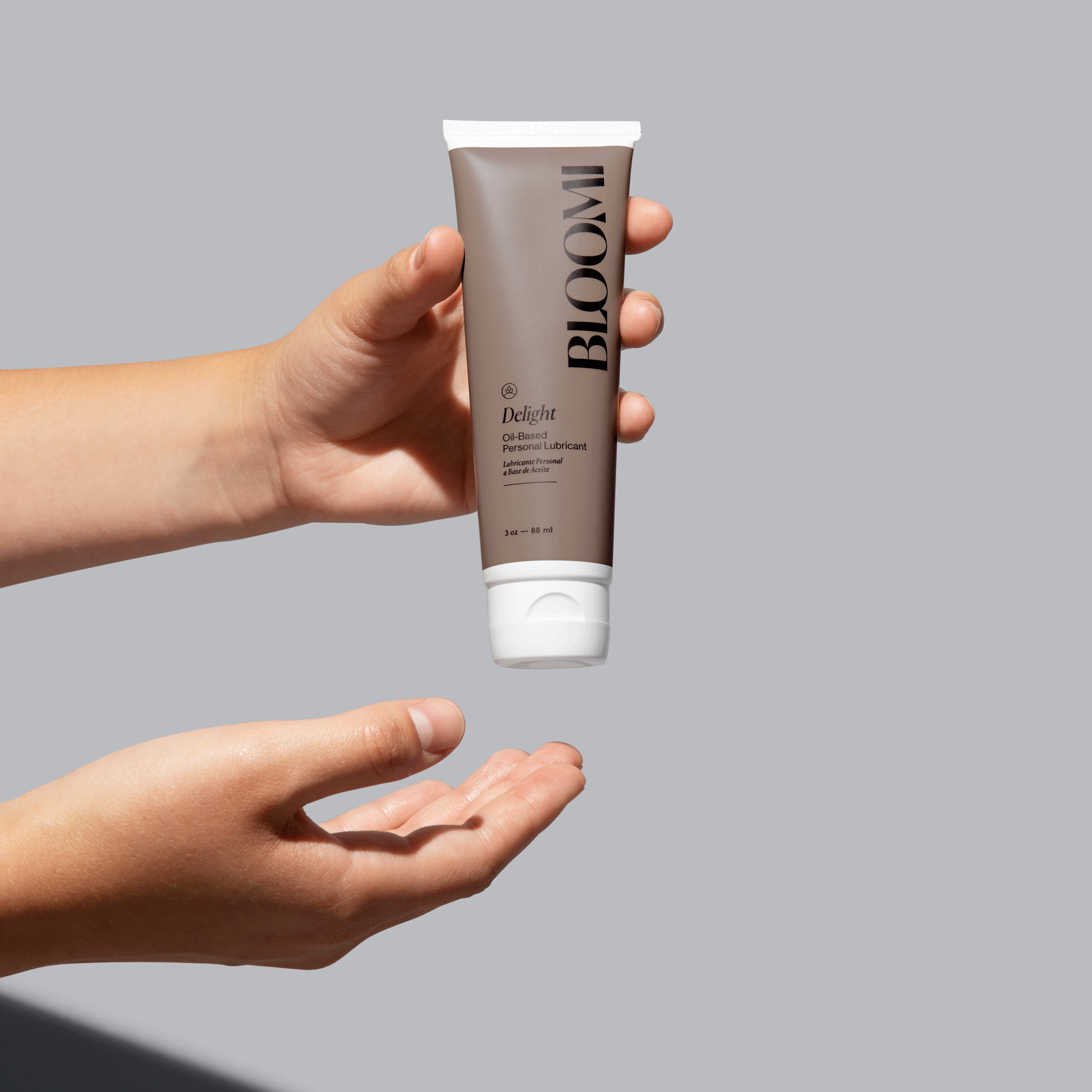This is the difference between water-based lubricants and oil-based lubricants
When it comes to sex, sometimes (oftentimes!) natural lubrication isn’t enough. Here’s how to choose between water-based and oil-based lubricants.
It’s normal for people to use personal lubricants during sex, solo and partnered. In fact, a study conducted in 2009 by Indiana University found that 70% of people found sex to be more pleasurable and were more likely to reach orgasm when using a lubricant.
With these stats, there is no wonder why there is a booming personal lubricant industry, offering an abundance of lubes that vary in formula and benefits. Since the most common lubricants that people keep in their nightstands are water-based lubricants and oil-based lubricants, we’re breaking down their differences and helping you decide which one best fits your needs and desires.
What to know about water-based lubricants
The main ingredient in water-based lubricants is — you guessed it — water. This lube is typically clear in color and has a lightweight feel that is similar to the texture of the body’s natural lubrication. Water-based lubricants, like Bloomi’s Smooth water-based personal lube, provide a slippery glide that eases friction during penetration or external stimulation.
However, because of its H20 base, it typically dries up in about three to five minutes, so reapplication is key to keeping a nice slip to reduce the risk of vaginal tearing and condoms breaking. Lastly, water-based lubricants are condom- and sex toy-friendly, so if you regularly use latex or polyisoprene condoms or silicone toys in your pleasure routine, be generous.
What to know about oil-based lubricants
Meanwhile, oil-based lubricants are made with oils and have a thicker texture that provides deep moisture to the skin. This type of lube has slightly less slip, but it lasts longer than water-based lubricants. Oil-based lubricants, like Bloomi’s Delight oil-based personal lubricant, are ideal for those who have sensitive skin, are prone to skin allergic reactions or are experiencing vaginal dryness due to hormonal changes like, menopause.
However, oil-based lubricants are not compatible with silicone toys or polyisoprene materials. In fact, oil-based products in general will damage and degrade silicone and latex materials overtime, which increases the risk of a condom tearing or ruining your new vibrator. Instead, oil-based lubricants are best for massaging directly into the intimate skin to increase sensation during sex. Lastly, because of its oily formula, cleanup may require a little more elbow grease, but you are safe just using soap and water. Moreover, oil-based lubes are more prone to staining clothing or bedding, so be careful and lay a towel down just in case.
A personal lubricant rule of thumb
Oftentimes, we have allergies that we are unaware of, including to plants or seeds that may be in clean, all-natural products. To avoid potential intimate skin allergic reactions, be sure to patch test the item by applying a small amount of the formula to a less-sensitive part of your skin, like your arm. Then check to see if you have any reactions.
Be sure to apply the same amount of product that you would use on your intimate area and keep it on for as long as you'd use it normally. Because some reactions do not happen immediately, try it again in about a week. If your skin doesn't react to the ingredients, it'll likely be safe to use on intimate areas. If it does, wash off the product immediately and keep it away from your intimate skin.
Lastly, if you just shaved or waxed your intimate area, it is not the time to try out your new lubricant. When we remove pubic hair, intimate skin becomes more sensitive and may be more susceptible to irritation or ingrown hairs. As a result, a formula — clean or not — that may not typically inflame the skin could end up causing some irritation like burning or itchiness.
A final note on water-based and oil-based lubricants
Shopping for a lubricant can feel overwhelming and even a little confusing at first, but we’ve got you covered. Use this guide to discover which lubricant best fits your pleasure routines.
Regardless of the lubricant that you and your partner(s) prefer, one thing begs repeating: There’s no shame in needing (or wanting) to use a personal lubricant. Most people use them and say that it makes sex more pleasurable, so have your fun.




